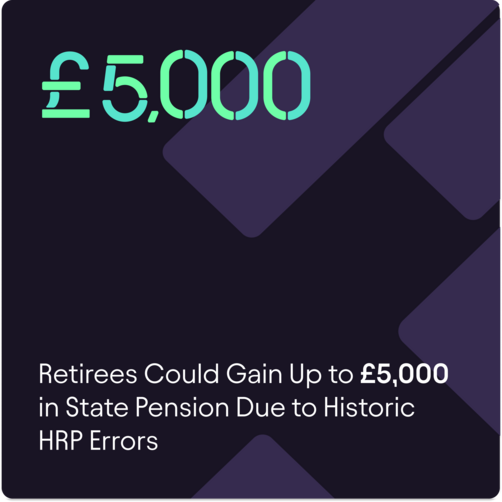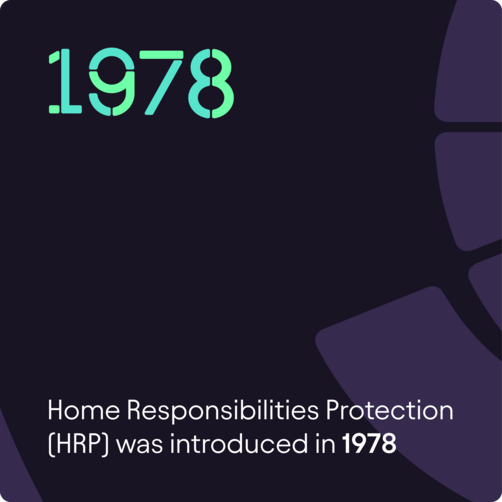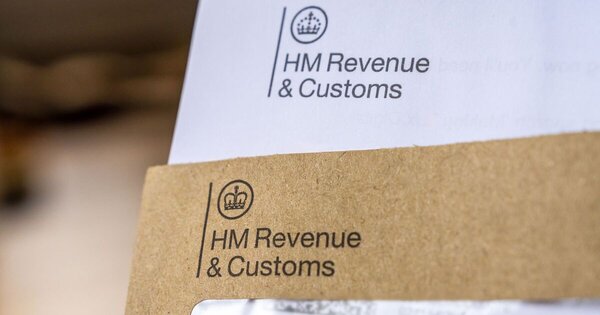Historic HRP Errors: Your Pension Boost Opportunity

HMRC has issued an alert to older citizens, revealing an opportunity to potentially claim an additional £5,000 in state pension.
This comes due to an historic oversight related to Home Responsibilities Protection (HRP). This scheme, originally established to help safeguard pension contributions for those caring full-time, has been found lacking in some records, leading to many retirees missing out on significant pension amounts.
HMRC estimates that tens of thousands could be affected by this oversight. The correction process is a part of their broader commitment to ensuring that citizens receive the full entitlements they're merited. For those who qualify, the prospect of backdated payments represents not just a financial boost but a recognition of their unpaid caregiving work.
Given the complexities of the pension system, HMRC has urged eligible individuals to check their records. The scope of these errors is extensive, impacting those who were primarily caregivers between 1978 and 2010. If you've been affected, now is the time to ensure your years of dedication are accurately reflected and rewarded in your state pension.
What is Home Responsibilities Protection (HRP)?
Home Responsibilities Protection (HRP)** was introduced in 1978 to help individuals, generally women, who took time off work to raise children or care for elderly relatives. It credited those individuals with National Insurance contributions to ensure their state pension wasn’t adversely affected by their essential caregiving duties.
The program ended in 2010, replaced by a more comprehensive system, but it has now come to light that many HRP records were not correctly transferred. As a result, numerous caregivers didn’t receive the full credits they deserved, impacting their state pension.


How to Check Your Eligibility
Checking eligibility involves examining your National Insurance record for missing years where HRP should be credited. HMRC’s dedicated helpline can provide assistance. For those less tech-savvy, the process may seem daunting, but don’t let that deter you from securing what’s rightfully yours.
Reviewing your records may reveal discrepancies that could be resolved with simple evidence, such as birth certificates or proof of caring responsibilities. It’s a vital step for ensuring your pension reflects the full breadth of your contributions.
Steps to Claim Your Backdated Pension Boost
The claiming process starts with contacting HMRC to confirm your eligibility. They will provide a thorough review of your National Insurance contributions and identify any missing HRP credits.
Once confirmed, HMRC will work with you to correct the records. This may involve submitting proof of the caregiving role you undertook. Redressing this historical oversight may take some time, but successful claims result in a significant financial benefit.

Potential Challenges in the Process
While the opportunity for a pension boost is welcome, the process isn’t without challenges. Finding the necessary documentation for caregiving roles decades past can be difficult. Additionally, navigating the bureaucracy may require patience and persistence.
Those unsure where to start should consider seeking advice from financial advisors or legal experts who specialize in pension matters. Successfully claiming backdated pension amounts can be life-changing but requires a proactive approach.
Implications for Future State Pension Policy
This historic oversight highlights the need for more robust and accurate recording in state pension systems moving forward. By addressing these needs now, the HMRC sets a precedent for transparency and fairness in pension contributions.
Future policies might include automated checks and balances to prevent such errors. Acknowledging and correcting these discrepancies ensures that every pensioner receives their due, honoring their contributions to caregiving and society.

Fun Fact: Pension History Quirk You Didn’t Know
Did you know the concept of state pensions dates back over a century? The UK introduced its first state pension in 1908 under the Old Age Pensions Act. Back then, recipients had to be over 70 and pass a ‘means test’ to prove they were in financial need. It's fascinating to think how much the system has evolved to recognize unpaid caregivers – a significant milestone in social policy development.
Conclusion
The ongoing HMRC correction of historic HRP records presents an opportunity for retirees to claim potentially significant backdated state pension payments. While the process may involve navigating some bureaucratic hurdles, the reward of up to £5,000 highlights the importance of verifying personal National Insurance records. This corrective measure not only helps individuals financially but acknowledges and values the unpaid caregiving roles many undertook.











